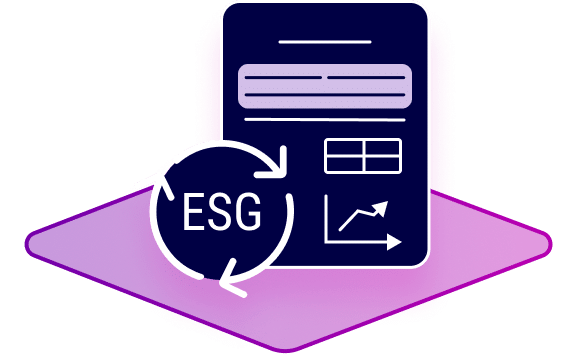
Interest rate adjustment clauses: With artificial intelligence, banks quickly gain clarity on their contractual situation
Premium-aided savings agreements with variable interest rates have kept German courts and banks busy for years. Most recently, the German Federal Court of Justice once again strengthened the rights of customers by declaring vague clauses invalid and called on banks and saving banks to review their contracts. In view of the increasingly strong case law, the pressure on German banks to act is increasing. With the artificial intelligence semantha®, banks can check with minimal effort which contracts contain legally invalid clauses and prepare for possible claims.
Interest rate adjustments are invalid in many cases
Banks are allowed to conclude contracts with variable interest rates. That is undisputed. However, lots of long-term savings contracts offered between 1990 and 2005 contain interest rate adjustment clauses that current case law classifies as illegal. In these clauses, banks link the interest rate to an index or reference interest rate without clearly defining these variables or making them verifiable for both contracting parties.
As early as 2004, the German Federal Court of Justice ruled that such clauses were invalid. This was followed by many more legal decisions of the court with the same tenor, most recently in 2021.
For a variable interest rate clause in a premium-aided savings contract to be legally valid, the clause must include the following elements:
- The amount of the interest rate adjustments must be based on an objectifiable reference market interest rate and must be clearly determined
- The adjustment interval must be defined
- The minimum change in the reference interest rate that leads to an adjustment of the interest rate must be defined
The risk of inaction for banks increases
The introduction of the model declaratory action (Musterfeststellungsklage) makes it easier than ever for consumers to take legal action against unlawful contracts. The consumer center (Verbraucherzentrale) summarizes thousands of individual complaints and files a lawsuit. By using this model, already 5000 savings contracts have been judicially examined.
The review does not always result in the banks having to pay additional interest to customers because the adjustments were unlawful. Nevertheless, according to the consumer center, the average amount of additional claims per contract has been 400 euros, with a peak of 78,000 euros in interest underpayments.
For banks, the strategy of wait and see is thus becoming increasingly risky. Even more so, as a general decree issued in 2021 by the Federal Financial Supervisory Authority (BaFin) has obliged them to inform their customers about invalid interest clauses proactively. (Press release from BaFin)
Manual reviews block valuable resources
Banks should set aside sufficient provisions to be prepared for possible claims. Until now, they have had to review their contracts manually to gain a clear picture of their obligations. This process is time-consuming and costly because many different contract templates are involved, depending on the bank. It is not enough for a lawyer to evaluate a handful of forms.
It is possible to minimize the review costs through a strategic use of personnel. But even with a review time of a few minutes per contract, the processing time quickly adds up to several months given the large number of forms and customer contracts.
To make matters worse, not only active contracts are affected by BaFin’s decree, but also contracts that have already been terminated and are no longer stored in the productive IT system. They are stored in archive systems and must first be exported before they can be reviewed – which costs additional time and resources.
This review process can only be accelerated to a limited extent by organizational means. After all, even the best lawyer needs time to make sure his work meets quality standards. Traditional software is of no great help either. IT can only optimize the workflow, but not accelerate the actual contract review.
Automated contract review minimizes time and cost required
However, artificial intelligence (AI) is different from conventional software. With semantha® we have developed an AI application that is able to understand contracts at meaning level. To do this, it uses NLP algorithms that process natural language.
Users define instructions which content semantha®should search for in documents, and the software filters out relevant paragraphs in documents reliably and quickly. With semantha®, users receive a spreadsheet in which contracts are sorted into legally valid and legally invalid. In the case of documents classified as problematic, the user can perform a manual review.
With the help of semantha®, banks can review their entire contract portfolio in a matter of weeks instead of months. And without compromising on review quality.
Not an AI tool like any other: What sets semantha® apart?
Is semantha® the only AI tool on the market for automated contract review? Of course not. However, semantha® does more than many competitors.
- semantha® is ready to use out of the box: The application uses NLP algorithms that deliver reliable results without months of training. Banks can use the application productively right from day one.
- semantha® “understands” language: The application does not merely search documents for exact phrases or synonyms but captures text at the level of meaning. Even if the subject matter is phrased differently, semantha® recognizes the paragraph as relevant for review. No other software on the market can do this!
- semantha® is intuitive to use: No extensive training or IT know-how is required to use the application effectively. Once installed, users can start their reviews with just a few clicks.
Want to experience how semantha® works?
Arrange a free online demo and consulting call with one of our sales reps. Get answers to your questions and experience for yourself how semantha® accelerates contract reviews.
Source: https://www.verbraucherzentrale.de/wissen/geld-versicherungen/sparen-und-anlegen/zinsklauseln-in-sparvertraegen-rechtswidrig-so-kommen-sie-zu-ihrem-geld-22232
Picture: mrmohock– stock.adobe.com












